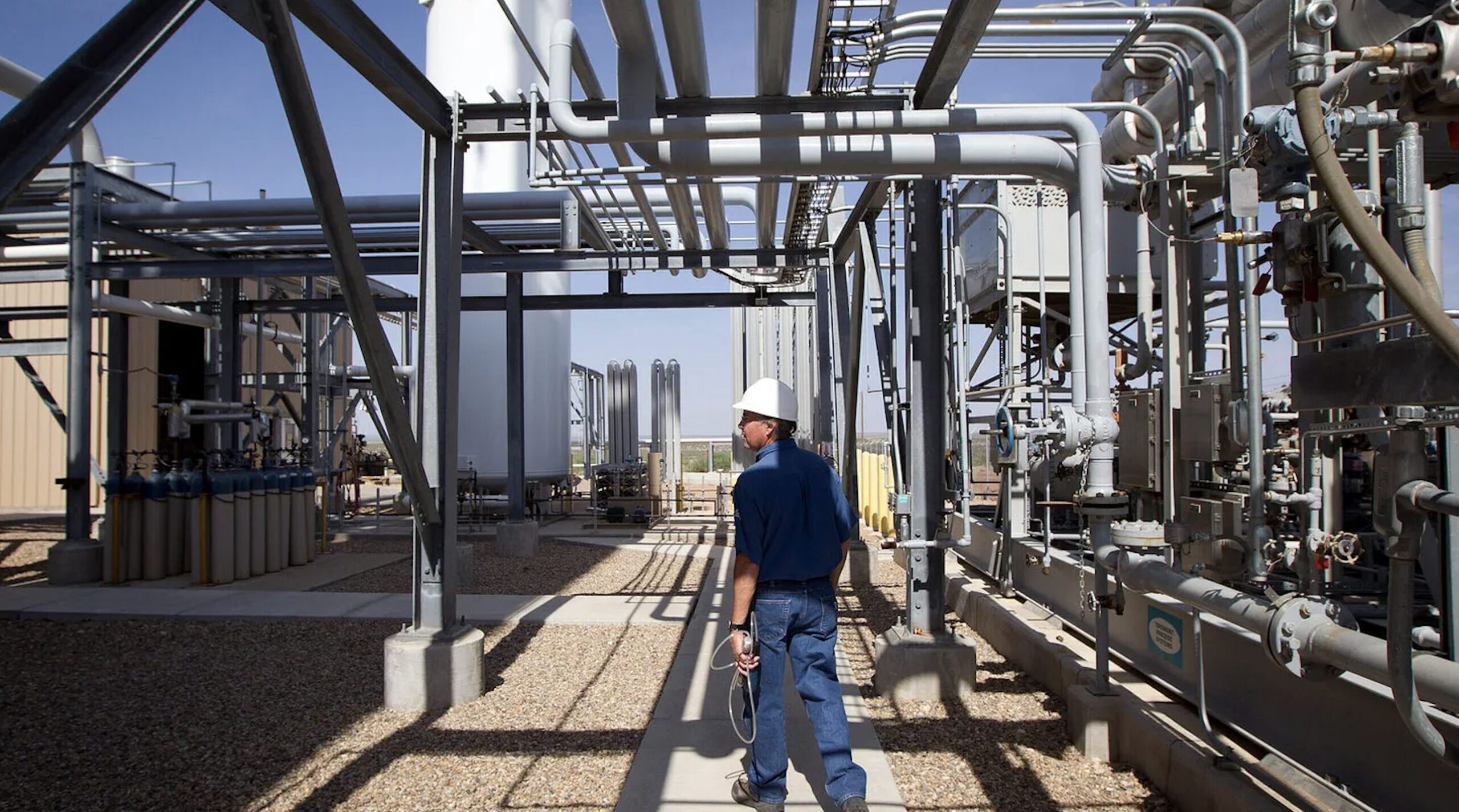
Erika Ayers Badan: The Future of Advertising
Today we’re talking about the Omnicom–IPG merger and what it means for agency jobs, how AI is replacing layers of work inside holding companies, and…
Thought Leader: Erika Ayers Badan

Ian Bremmer’s Quick Take: Hi everybody, Ian Bremmer here. And yes, we are seven weeks into the war, but we also have real problems in containing COVID in China.
In the United States and the rest of the developed world, everyone’s saying, “We’re done with COVID. We don’t want to wear masks anymore. We want to get our lives back.” But in China, the zero-COVID policy means that they’ve got still major lockdowns. In particular, in Shanghai, the largest city in China, which is now entering a second week of lockdown. And record numbers of cases in Shanghai, nothing close to the numbers of cases you were seeing in the United States or in Europe, but in China — where very few people have gotten COVID, and so there’s no natural immunity, vaccines don’t work very well and the hospitals would get overwhelmed very quickly if they were just going to let COVID rip — understandable that they are extremely nervous about these small numbers and as a consequence, they’re locking down the entire city.
Now, one thing I can say is that the Chinese government is very effective in terms of lockdown. So the province of Jilin, which had also significant outbreak, and they started locking down a month ago, that looks like those cases are almost down to zero. So the lockdown with four weeks has been almost completely effective and they’ll be able to reopen completely in relatively short order. Shanghai, very far from that. Also, Shanghai is not only the largest, but also the wealthiest city in China. Their per capita income is higher than a lot of European countries, very well educated. And people in Shanghai are not at all happy with the idea that they have to sit in their apartments for weeks on end, they’re having difficulty getting food, that their pets are being rounded up and destroyed, that at the beginning that their kids, if their kids were COVID positive and the parents weren’t, the children were separated from the parents. There was a very significant outcry over that. The Chinese government actually changed that policy guidance within just a few days as consequence.
But still, I will say from the perspective of the Chinese government, they are not going to change this policy. They think it’s a success, the inconveniencing of dozens of millions of Chinese being forced to live in their homes. I mean, even from the American perspective, the idea that they’ll take your pets away and they’ll kill them, in the case of China, culling pets is seen to be a very small downside for avoiding major hospitalizations and deaths across the country. The Chinese government looks at the US and sees a million people that have died from COVID so far. They look in Europe and see comparative numbers across the European Union in terms of deaths per capita. And they say, “These are countries that aren’t actually valuing the lives of their citizens. They’re not willing to make any sacrifices for the good of the, for the people, and we are going to do this very, very differently.”
And I am sympathetic to that perspective, but I’m not sympathetic to patriotism that says that we are not going to accept Western vaccines because we have to do it all in China. That’s stupid. And indeed it’s really dangerous for the Chinese people. The fact is that we have massive surplus in terms of vaccines globally, at this point, very different from where we were a year ago or six months ago. The Chinese vaccines work very poorly in stopping spread, especially of these new omicron variants. The Western-made mRNA vaccines are much more effective. The Chinese are working on their own, but they’re not ready yet and they won’t be until the end of the year at large number.
And in Africa, you couldn’t get the vaccines because you didn’t have the distribution capability, so a lot of them were actually spoiling before they could get to the citizens on the ground. And so everyone in Africa ended up getting COVID and now they’ve got natural immunity. It’s a much younger population. They’re getting back to normal lives as well. In the case of China, the population is much older. A lot of the oldest people haven’t been willing to have vaccines. And the Chinese government is unwilling to license Pfizer and Moderna. They say, “Nope, we don’t trust it. We’re only going to do our own.” And when you put that together, well, that’s one of the reasons why they’re going to be forced to do all of these continual lockdowns.
And I don’t see it changing. I think it’s going to get worse because this omicron variant and the new variants that are coming are more and more and more transmissible. And that means that in a Chinese population where no one’s gotten COVID and the vaccines don’t really work, if you were to just let the disease go and not have massive quarantines, as the Chinese government says, you could have five million Chinese citizens die, and I think that’s probably right. And they’re simply not willing to tolerate that possibility, nor are they willing to accept Western vaccines. Put those things together, means a lot of Chinese citizens are going to get angry. And we have seen some of that. You’ve seen the yelling and the screaming, for example, from the apartments late night in Shanghai. That’s very different from saying there’s going to be mass violence. I don’t expect that at all because the surveillance system that the Chinese have and their ability to punish non-compliance is so incredibly strong that the average Chinese citizen knows better than to overtly come out and engage in civil disobedience in the country.
But it does mean that their economy is going to have serious problems this year. They’re nowhere close to 5% growth. They will need to engage in more fiscal stimulus. They won’t be able to deal with a lot of the regulatory responses that they were hoping for in dealing with, for example, the bubble of the real estate sector and other bad debt that’s in the corporate sector. And that kicks those issues down the road longer, which means the pain that the Chinese economy will eventually suffer will be much greater as a consequence of this.
One piece of good news is that lower Chinese growth and demand in this environment when you have so much commodity inflation explosion, in terms of oil, and gas and energy, also in terms of food, does help to take some of the air out of that. And so right now, oil prices are a little lower than a hundred. A piece of that is expectation that the world’s second largest economy is going to significantly underperform this year. Always silver linings in these sorts of things.
Anyway, something we have to watch very carefully. You’ll remember back in January, we thought the number one risk for the world in 2022 was “No zero-COVID”, that this policy would fail. The Chinese government came out and was pretty critical. They said, “How can you Americans criticize us? Look at how badly you got it wrong.” Well, I mean, we did get it wrong and we have gotten wrong. We still get it wrong. But that doesn’t mean that the Chinese government is going to be flexible in responding to their big challenges, and we see that playing out right now.
So we’ll watch it carefully and we’ll talk to you all real soon. Be good.
Erika Ayers Badan: The Future of Advertising
Today we’re talking about the Omnicom–IPG merger and what it means for agency jobs, how AI is replacing layers of work inside holding companies, and…
Thought Leader: Erika Ayers Badan
Eyck Freymann: How to Break China’s Minerals Chokehold
Why the allies need a multilateral commercial stockpile This essay is based on a Hoover History Lab working paper, co-authored with Joshua Stinson, William Norris,…
Thought Leader: Eyck Freymann
Chris Miller: Robotics Manufacturing: The Rise of Japan
“To the Americans, a robot is a computer attached to a mechanism. To Japanese, a robot is a mechanism attached to a computer.” The future…
Thought Leader: Chris Miller

